Energy Production & Transportation Events in Cape Town

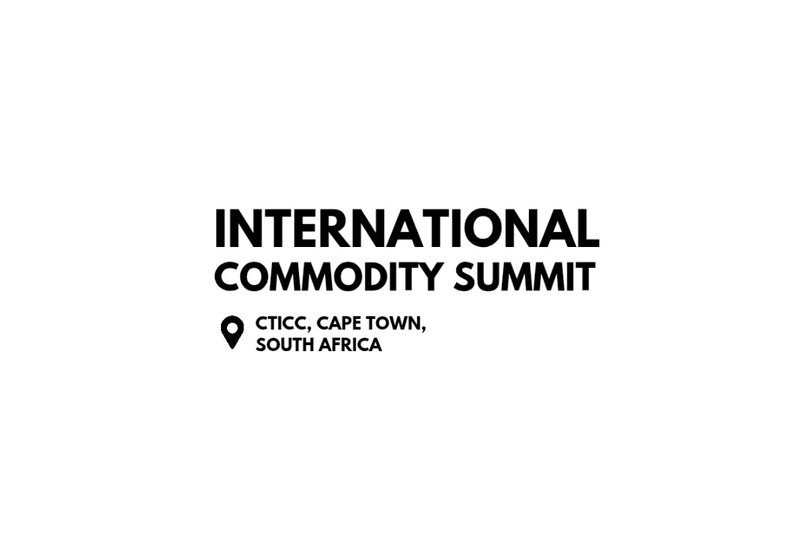
International Commodity Summit
International Commodity Summit: Driving Africa’s Trade and Global Market Leadership
In a fast-evolving global trade environment, the International Commodity Summit (ICS) stands out as Africa’s leading business-to-business trade event, uniting key players from across the global commodity landscape. Hosted in South Africa, ICS acts as a premier platform where exporters, buyers, investors, and policymakers converge to shape the future of commodity trade across sectors and continents.
Unlike conventional expos, ICS integrates industry exhibitions, high-level panel discussions, and tailored networking events, creating a fertile ground for collaboration and strategic deal-making. With a strong emphasis on long-term development and innovation in international trade, ICS empowers participants to not only showcase their offerings but also forge relationships that lead to sustainable commercial impact.
A Pan-African Hub for Global Commodity Leaders
The International Commodity Summit is not just about showcasing products—it’s about strategic convergence. The event is specifically designed to bring together professionals and decision-makers from sectors where Africa holds vast resources and untapped potential.
Attendees at ICS span a broad and influential spectrum, including:
Exporters and producers seeking to enter or expand into new markets
International buyers scouting reliable suppliers and partnerships
Government trade ministries looking to promote national trade agendas
Investors and financiers focused on commodity-backed ventures
Policy experts and analysts guiding regional economic integration
These groups don’t simply gather to network—they attend with a clear mission: to negotiate, collaborate, and sign trade agreements that can drive meaningful growth across value chains.
Industry Focus: From Agriculture to Energy and Beyond
One of the key strengths of the International Commodity Summit lies in its cross-sectoral representation. Africa’s rich resource base makes it a key global player across multiple commodity verticals. ICS captures this diversity by offering a platform where industries intersect, insights are exchanged, and deals are done.
Sectors Represented at ICS Include:
Agriculture: From cash crops to agri-tech, showcasing Africa’s role in global food supply.
Chemicals: Covering raw and processed chemical commodities essential for industrial use.
Construction & Infrastructure: Focusing on building materials, cement, steel, and development logistics.
Energy: Including renewables, oil and gas, and emerging green technologies.
Metals & Mining: Highlighting Africa’s mineral wealth, from copper and cobalt to gold and lithium.
By focusing on these high-impact sectors, ICS promotes interconnected growth and identifies cross-industry synergies that can strengthen regional economies.
What to Expect at the International Commodity Summit
Unlike traditional conferences, ICS combines multiple event formats to foster deeper engagement. Whether you’re attending to showcase a product, explore a partnership, or analyze trade policy, there is something tailored for you.
Participants can take part in:
Themed industry exhibitions with product and service showcases.
Panel discussions led by experts on trade trends, logistics, and sustainability.
Seminars and workshops offering practical insights into regulations, finance, and market access.
Extended networking events, including business breakfasts, cocktail receptions, and closed-door investor meetings.
Sponsor and exhibitor activations, offering increased brand visibility and stakeholder access.
These formats ensure that every participant can gain both strategic insight and real commercial value from attending.
Where Trade Meets Action: The Power of Deal-Making
While many international conferences center on thought leadership, ICS distinguishes itself by being action-oriented. The majority of delegates—whether government representatives, corporate exhibitors, or financiers—arrive with a clear goal: to initiate or finalize trade deals that can lead to measurable outcomes.
The event provides an ideal backdrop for:
Signing bilateral trade agreements
Announcing public-private partnerships
Launching commodity procurement contracts
Negotiating long-term supply chain investments
Such outcomes underscore ICS’s role not only as a platform for discussion but also as a marketplace for development.
The Importance of South Africa as a Host Country
As host, South Africa plays a strategic role in amplifying the visibility and credibility of the International Commodity Summit. With its advanced infrastructure, diversified economy, and established trade routes, South Africa serves as a natural launchpad for regional and international collaboration.
From its ports to its policy frameworks, the country provides the ideal logistical and legal environment for cross-border trade growth. This makes the event more than a symbolic gathering—it’s a practical and strategic moment for Africa’s commodity sector to present itself to the world.
Key Benefits of Attending ICS
Whether you're an established multinational or a regional producer, the International Commodity Summit offers a wide array of benefits:
Meet top-tier buyers and investors under one roof
Showcase your products and innovations in a targeted environment
Gain critical insight into evolving trade laws and commodity pricing trends
Forge partnerships that go beyond networking
Participate in Africa’s transformation from a raw-material exporter to a value-driven player
These advantages make ICS a must-attend for anyone serious about engaging with the future of global commodity trade through an African lens.
ICS and the Future of International Trade in Africa
Africa’s commodity potential has never been in doubt, but how that potential is realized depends on events like the International Commodity Summit. ICS is not merely about resources—it is about relationships, responsibility, and regional development. By emphasizing innovation, sustainability, and partnership, the event contributes to Africa’s vision of becoming not just a supplier—but a strategic global trade leader.
As global supply chains shift and economic priorities realign, ICS offers a space where African producers meet international demand with intelligence, sophistication, and competitive readiness.
A Summit with Substance and Strategy
As Africa's leading trade event for global commodity leaders, the International Commodity Summit provides more than a venue—it provides momentum. With the right blend of content, contacts, and commerce, ICS is helping to chart the course for a more connected, equitable, and growth-driven future for the continent and its partners around the globe.
Whether you aim to exhibit, invest, sponsor, or sign, ICS is where opportunity meets action.


RefuelForum Africa
RefuelForum Africa: A Strategic Platform for Fuel, Finance, and Energy Innovation
RefuelForum Africa, organized by CloserStill Media Ltd, is poised to become a key industry event in 2025. Held at The Westin Cape Town, in the vibrant city of Cape Town, South Africa, this high-impact conference and tradeshow brings together top-tier professionals from across the fuel, banking, finance, and power sectors.
The forum aims to spark meaningful dialogue and innovation in industries that are crucial not only to the African continent but to the global economy. With a sharp focus on networking, collaboration, and thought leadership, RefuelForum Africa positions itself as an essential meeting point for business leaders driving change.
A Crossroads of Industry Expertise and Opportunity
Unlike traditional expos that focus solely on products, RefuelForum Africa blends strategic conference sessions with an engaging exhibition format, delivering real value through curated business conversations. The event is structured to promote partnerships between buyers and solution providers in:
Fuel retail and wholesale
Banking and transaction technologies
Power generation and energy transition
Sustainability and green innovation
Infrastructure and logistics services
This broad yet interconnected focus makes the forum an ideal place for decision-makers looking to stay ahead of emerging trends and align with the future of energy infrastructure in Africa and beyond.
Key Themes Driving the Conversation
Throughout the event, attendees will engage with a robust agenda that reflects the multi-dimensional challenges and opportunities facing the energy ecosystem. Among the key themes expected to shape the discussions:
Digital Transformation in Fuel Retail
Payment innovation, mobile integration, and smart stations
Automation and customer engagement technologies
Green Energy and Net-Zero Pathways
Renewable integration into traditional fuel networks
Electrification of transport and clean mobility
Finance as a Driver of Innovation
Investment flows into energy transition projects
Banking partnerships that support sustainable infrastructure
Resilience and Security
Managing energy supply chains in uncertain times
Cybersecurity and risk management in digital systems
This cross-sector approach reflects the growing interdependence between fuel, finance, and energy sectors, particularly as Africa’s infrastructure evolves to meet modern demands.
Why Cape Town is the Ideal Host City
Cape Town offers more than just a scenic backdrop. As a strategic economic hub in southern Africa, it is home to key players in the energy, technology, and financial services industries. The city also boasts well-developed infrastructure and direct international connectivity, making it an accessible destination for regional and global attendees.
The venue, The Westin Cape Town, provides a high-standard professional environment, ideally suited to business meetings, exhibitions, and executive discussions. This enhances the value of attending RefuelForum Africa not only for the content but also for the quality of connections formed.
Exhibitors and Participants: Who Will You Meet?
RefuelForum Africa is expected to attract a diverse yet targeted audience, including:
Fuel retailers and distribution executives
Representatives from commercial banks and financial institutions
Power and energy project developers
Government regulators and public sector planners
Startups and scaleups with innovative clean energy tech
Suppliers of fuel station equipment, software, and analytics solutions
This curated guest list ensures a high-level business atmosphere with opportunities for partnerships, investment, and technology exchange.
Interactive Features and Networking Opportunities
The forum is not just a place to listen—it is a place to engage and act. Attendees will benefit from a mix of:
One-on-one meetings with vendors and peers
Panel discussions featuring thought leaders from multiple industries
Workshops and roundtables on current market challenges
Product demonstrations and tech showcases
Informal networking receptions designed for relationship-building
These elements are specifically curated to maximize value for both exhibitors and delegates, ensuring each participant walks away with fresh ideas and valuable contacts.
How to Prepare for the Event
To fully leverage the opportunities at RefuelForum Africa, attendees are encouraged to:
Pre-Event Checklist:
Register early and secure meetings with target vendors
Study the speaker list and session agenda
Prepare talking points or case studies relevant to your business
Pack marketing materials or digital portfolios for networking
Book accommodation near the venue to streamline logistics
This preparation will help participants move from passive attendance to active participation, enhancing the ROI of their time and travel.
Advancing Africa’s Energy and Financial Future
As Africa continues to play a growing role in global energy and finance, RefuelForum Africa emerges as a vital convening point. With its focus on collaboration, innovation, and sustainable development, the event helps set the direction for how fuel, finance, and energy systems will adapt and thrive in the coming years.
Whether you're seeking strategic partnerships, discovering cutting-edge technologies, or simply wanting to understand where the market is heading, RefuelForum Africa offers the ideal platform to engage, connect, and lead.


Africa Energy Forum
The Africa Energy Forum: Shaping Africa's Energy Future
The Africa Energy Forum (AEF) stands as the premier annual event dedicated to the development, investment, and advancement of Africa’s power and gas sectors. Now in its 27th year, this event has continuously provided an essential platform where governments, industry leaders, private sector investors, and technical experts gather to explore the future of Africa’s energy landscape. This year marks a historic milestone, as the forum moves to Cape Town, South Africa, bringing this influential event to one of the continent's leading energy development centers. Set against the stunning backdrop of Table Mountain, AEF is positioned to address Africa’s most pressing energy challenges and unlock opportunities for sustainable and inclusive energy growth across the continent.
Africa's Energy Potential and the Role of AEF
Africa, a continent rich in natural resources, is on the brink of an energy transformation. The region boasts abundant sources of renewable energy, such as solar, wind, and hydropower, alongside vast reserves of natural gas and oil. However, many African nations still face significant challenges in meeting the energy needs of their rapidly growing populations. AEF has become the focal point for addressing these challenges, while promoting investments in both traditional and renewable energy infrastructure to power Africa’s future.
The Africa Energy Forum (AEF) plays a crucial role in driving change, by connecting diverse stakeholders—government leaders, multinational corporations, investors, and energy developers—to form actionable partnerships and solutions. The forum focuses on addressing the complex barriers to energy access and working toward affordable, reliable, and sustainable energy for all Africans.
Key Highlights of the Africa Energy Forum
AEF brings together an unparalleled group of experts, industry executives, government representatives, and financiers. The forum features a variety of presentations, discussions, and opportunities for networking. Some key aspects that define AEF include:
1. A Meeting Ground for Government and Private Sector Collaboration
One of AEF's key strengths lies in its ability to facilitate discussions between government officials and private-sector stakeholders. African governments have a central role in promoting energy growth through policy-making and infrastructure development. They are keen to showcase the significant investment opportunities available within their national power and gas sectors.
Policy Announcements: Senior government officials use AEF as a platform to unveil new energy policies, investment incentives, and public-private partnership frameworks designed to foster energy sector growth.
Private Sector Participation: As Africa’s energy demand surges, private-sector investment becomes increasingly vital. AEF enables private-sector players, including energy companies, technology providers, and international investors, to engage with African governments, ensuring that energy infrastructure projects receive the attention and funding they need.
2. Renewable Energy: A Central Theme at AEF
With an increasing global emphasis on combating climate change, renewable energy is taking center stage at this year’s event. Africa is uniquely positioned to capitalize on renewable resources. Discussions at AEF will focus on accelerating the adoption of renewable energy technologies, such as solar, wind, and hydropower, which are not only crucial to addressing energy shortages but also pivotal for mitigating the impacts of climate change.
Advancing Solar and Wind Projects: AEF will highlight the ongoing renewable energy projects across the continent and present upcoming ventures that will enhance Africa’s renewable energy capacity.
Energy Storage and Grid Integration: With the rise of intermittent renewable resources, energy storage solutions and smart grid technologies will also be a focal point of discussions. These innovations can provide much-needed flexibility, allowing Africa’s energy grid to integrate renewable energy sources efficiently.
3. Exploring Investment Opportunities in Africa’s Energy Market
The energy market in Africa presents substantial investment opportunities, with projects that promise not only financial returns but also social and economic benefits. AEF serves as an essential meeting point for those seeking to capitalize on Africa’s growing energy market.
Financing Solutions for Energy Projects: A critical theme at this year’s forum will be financing mechanisms that can drive energy infrastructure development. AEF offers a platform for exploring different financing options, from private equity and debt financing to innovative public-private partnerships.
Energy Access for Rural and Remote Areas: One of Africa’s significant energy challenges is providing power to rural and off-grid communities. AEF will explore cutting-edge solutions for energy access, such as mini-grids and solar home systems, aimed at improving the lives of those without reliable electricity.
4. Technological Innovation and Energy Efficiency
Technological innovation is pivotal to the future of Africa’s energy landscape. AEF will explore how digital technologies, energy-efficient solutions, and automation are driving the modernization of Africa’s energy systems.
Smart Grids and Digital Technologies: The integration of smart grids can optimize electricity distribution, reduce power outages, and enhance energy efficiency. As part of the forum, experts will discuss the latest developments in grid modernization, digital technologies, and how they can contribute to a more resilient energy system.
Energy Efficiency Measures: In addition to boosting energy supply, energy efficiency is a key focus. AEF will provide insights into how energy consumption can be optimized in both residential and commercial sectors, thus reducing Africa's carbon footprint.
5. Networking Opportunities and Strategic Partnerships
AEF is known for its exceptional networking opportunities, offering delegates the chance to form strategic alliances, develop partnerships, and engage in dialogues that have the potential to transform the energy landscape across Africa.
Interactive Sessions and Workshops: The event will feature a range of interactive sessions where participants can engage in meaningful discussions on topics such as sustainable energy policies, energy finance, and renewable energy project development.
B2B Meetings and Exhibitions: Delegates will have access to numerous B2B meetings and exhibitions showcasing the latest energy products, services, and innovations from leading manufacturers and suppliers. This facilitates direct contact with potential partners, clients, and investors.
AEF: A Defining Moment for Africa’s Energy Future
The Africa Energy Forum (AEF) in Cape Town represents a defining moment for Africa’s energy future. As the continent works to address its energy needs while navigating the challenges of climate change, AEF serves as a crucial venue for fostering collaboration, securing investments, and sharing insights that will drive the sector forward.
With a focus on renewable energy, investment opportunities, technological advancements, and collaborative partnerships, AEF continues to be a leading platform for shaping Africa’s energy transformation. As the forum gathers the continent’s most influential energy stakeholders, it will play an instrumental role in driving the transition to a more sustainable, efficient, and prosperous energy future for Africa.
Through AEF, Africa has the opportunity to unite the best minds in the energy sector, develop solutions that meet its unique energy challenges, and position itself as a global leader in the clean energy revolution. The path forward will require innovation, investment, and strong partnerships, and AEF is the perfect starting point for the energy transformation Africa needs.


Enlit Africa
Enlit Africa stands out as one of the most influential events dedicated to addressing the energy challenges and opportunities on the African continent. A gathering that draws attention from all corners of the globe, Enlit Africa serves as an essential meeting point for those involved in the power, energy, and water sectors. This year, as in previous editions, the event promises to offer a dynamic platform for discussions, knowledge exchange, and collaboration on the future of the energy sector in Africa.
Held annually, Enlit Africa brings together industry leaders, technology providers, policymakers, and investors to explore and tackle the pressing energy issues faced by the continent. The event facilitates connections between stakeholders and fosters partnerships aimed at driving sustainable solutions to power the African economy. As the continent continues its rapid economic growth, energy infrastructure and energy access are critical factors in ensuring that development is inclusive and sustainable. Enlit Africa provides the ideal setting for advancing these conversations.
Exclusive Content and Networking Opportunities
One of the most valuable aspects of Enlit Africa is the exclusive content available to all attendees. The Enlit Africa Show Guide offers a comprehensive overview of the event, featuring exclusive interviews, detailed insights, and expert analyses of the African power and energy landscape. Additionally, attendees have access to an extensive floorplan map and the event’s full programme, ensuring they can make the most of their time at the event.
Networking opportunities are also abundant, with hundreds of decision-makers, innovators, and experts in attendance. Enlit Africa features dedicated matchmaking sessions that allow for targeted, one-on-one interactions, facilitating the creation of meaningful connections and partnerships. These meetings are crucial for exploring new business opportunities, gaining access to innovative technologies, and discussing industry trends.
A Platform for the Latest Technological Innovations
Enlit Africa acts as a showcase for the latest technologies and solutions in the energy sector. With more than 250 exhibitors, this event is an invaluable opportunity to explore cutting-edge advancements across various energy fields, including solar power, wind energy, battery storage, and smart grid technologies. For companies seeking to expand into Africa or gain insights into the energy needs of the continent, Enlit Africa provides the perfect setting to meet and engage with potential partners and clients.
As the world shifts towards more sustainable and efficient energy sources, Enlit Africa highlights the role of new technologies in driving this transformation. The event brings together energy experts and innovators who are ready to demonstrate how their solutions can address the unique challenges faced by African countries. By showcasing products and services in areas such as renewable energy, energy storage, and energy efficiency, Enlit Africa acts as a bridge between innovative solutions and the growing demand for reliable, sustainable energy across the continent.
Investment Opportunities and Project Networking
Enlit Africa is not just about technology; it also provides ample opportunities for investment. The Project & Investment Network is a key feature of the event, offering exclusive access to investment opportunities in Africa’s energy sector. This platform connects investors with viable projects, enabling them to find high-impact investments that align with their interests and objectives. From renewable energy projects to energy infrastructure development, Enlit Africa serves as a hub for financing opportunities that can help accelerate the region's energy transition.
Investors are given the chance to meet with project developers and stakeholders from across the continent to discuss potential collaborations and funding opportunities. This is particularly important in a region where energy development projects often require significant capital to reach fruition. By connecting investors with the right projects, Enlit Africa helps to bridge the financing gap and supports the growth of the energy sector.
Forums and Stages for Knowledge Sharing
Enlit Africa is more than just an exhibition and investment platform. The event is rich in content, offering a range of strategic forums and knowledge-sharing sessions across multiple stages. These sessions are designed to provide insights into various aspects of the energy industry, from policy development and regulatory challenges to technological innovations and market trends.
For those interested in specific sectors, the event offers targeted content through specialized stages such as Renewable Energy & Storage, Smart Tech, and Energy Efficiency. Each stage provides attendees with the opportunity to hear from experts, thought leaders, and innovators who are shaping the future of energy in Africa.
One of the most important forums at Enlit Africa is the African Utility CEO Forum, where top executives from Africa's utility companies gather to discuss challenges and opportunities in the energy sector. This forum covers key topics such as energy access, grid modernization, digital transformation, and sustainability. The discussions here are crucial for shaping the policies and strategies that will drive the energy transition in Africa.
In addition, the Municipal Forum plays a vital role in addressing the energy needs of local governments. It focuses on the role of municipalities in driving sustainable energy solutions, exploring issues such as energy access in rural areas, affordable energy solutions, and community-based projects. These forums help local governments and municipalities find solutions that can address the energy challenges they face, particularly in underserved regions.
A Vision for Sustainable Progress
At its core, Enlit Africa is driven by a vision for sustainable energy solutions that will contribute to Africa’s economic development. The event emphasizes the need for cleaner, more efficient, and more affordable energy to power Africa’s growing cities, industries, and rural areas. With renewable energy sources such as solar, wind, and hydropower playing an increasingly prominent role, Enlit Africa highlights the importance of these technologies in driving the continent’s energy future.
As Africa seeks to expand its energy infrastructure, it is essential that energy solutions are both economically viable and environmentally sustainable. Enlit Africa provides a platform for stakeholders to discuss the strategies needed to scale up clean energy solutions across the continent while addressing the unique challenges of each region. By fostering collaboration between policymakers, industry leaders, and investors, Enlit Africa is playing a key role in driving Africa’s energy transformation.
The event is also instrumental in raising awareness about climate change and carbon reduction goals, which are central to Africa’s energy policies. As the continent moves toward a low-carbon future, Enlit Africa brings attention to the technologies and policies that can help mitigate the impact of climate change while promoting economic growth.
Enlit Africa is more than just an event; it is a catalyst for change in the African energy sector. By providing a platform for knowledge exchange, technological innovation, and investment, it plays a critical role in shaping the future of energy across the continent. Whether you are a policymaker, investor, entrepreneur, or energy expert, Enlit Africa offers an unparalleled opportunity to connect with like-minded professionals and contribute to the advancement of sustainable energy solutions in Africa. As the continent embraces its energy future, Enlit Africa stands at the forefront of this exciting transformation, offering the tools, insights, and connections needed to drive the energy transition forward.


ARDA Week
ARDA Week Conference: Leading Discussions on the Future of Power & Energy in South Africa
Introduction: Setting the Stage for ARDA Week
The ARDA Week Conference stands as a landmark event in the power and energy sector in South Africa, taking place at the Century City Conference Centre in Cape Town. Aimed at tackling the pressing challenges of the energy industry, ARDA Week gathers professionals, policymakers, and thought leaders to engage in discussions about the future of energy in South Africa and the broader African continent. As one of the leading conferences in the region, the event offers unparalleled opportunities for networking, knowledge exchange, and collaboration.
The focus of ARDA Week is clear: driving sustainable energy solutions, advancing innovative technologies, and fostering partnerships to propel the growth of the energy sector. Through expert-led sessions and interactive panels, the conference explores key topics within the energy space, from renewable energy to energy efficiency and the role of new technologies in transforming the industry.
Core Themes Discussed at ARDA Week
One of the highlights of ARDA Week is its comprehensive approach to covering the most critical issues facing the energy sector. The event is designed to address various aspects of the industry, focusing on themes that are both globally relevant and regionally important. The conference brings together leading voices to discuss the following key areas:
Renewable Energy: A primary theme at ARDA Week is the transition to renewable energy sources, particularly solar, wind, and hydropower. The conference delves into the technological innovations and policy changes that are accelerating the adoption of renewables across Africa. With an increasing need to reduce reliance on fossil fuels, the role of renewables in diversifying South Africa's energy mix is a major topic of discussion.
Energy Efficiency: As the world moves towards a more sustainable future, energy efficiency is a growing concern. The conference examines the ways in which both industries and consumers can reduce their energy consumption through better practices and more efficient technologies. Efficiency improvements are key to reducing costs, lowering emissions, and achieving long-term sustainability goals.
Grid Modernization: ARDA Week explores the evolution of power grids, a crucial element of the energy landscape. Modernizing the grid to accommodate renewable energy sources, improving storage capabilities, and ensuring reliability are some of the key topics discussed. With increased reliance on decentralized energy generation, the grid must adapt to ensure that energy is efficiently distributed across the region.
Decarbonization and Sustainability: The move towards a low-carbon economy is central to the discussions at ARDA Week. The event emphasizes the importance of decarbonization strategies in reducing greenhouse gas emissions, particularly in hard-to-abate sectors such as industrial production and transportation. Policy frameworks, technological solutions, and business models that promote sustainability are key topics for conversation.
Engaging with Experts and Industry Leaders
One of the most valuable aspects of ARDA Week is the chance to interact with some of the leading figures in the energy sector. The conference attracts a diverse range of speakers, from government officials to industry executives, offering attendees insights into the latest developments and strategies for advancing energy solutions.
Government Leaders and Policymakers: At ARDA Week, attendees can expect to hear from key government representatives who are driving energy policy and regulation in South Africa. With energy security and sustainability being high on the political agenda, these discussions are crucial for understanding the future direction of the sector.
Industry Experts: Leading experts from both the private and public sectors provide valuable insights into emerging trends, market dynamics, and technological innovations. The opportunity to hear from those at the forefront of the energy transition is invaluable for attendees looking to stay ahead in the field.
Innovation and Technology Providers: A significant part of ARDA Week is dedicated to showcasing the latest technological advancements in the energy space. From smart grids to energy storage solutions, the conference provides a platform for innovators to present their products and services that are transforming the energy industry.
Networking Opportunities at ARDA Week
In addition to the presentations and discussions, ARDA Week provides ample opportunities for networking. The conference is designed to facilitate connections among industry professionals, offering spaces for informal discussions, one-on-one meetings, and collaborative partnerships. Networking at ARDA Week can lead to new business opportunities, strategic alliances, and the sharing of ideas that drive the industry forward.
Meetings and Partnerships: One of the key benefits of attending ARDA Week is the opportunity to meet potential partners, clients, and collaborators. Whether you're a developer, an investor, or a technology provider, the conference offers a platform to explore synergies and build meaningful relationships that can support the growth of your business.
Interactive Sessions: ARDA Week also offers interactive sessions where attendees can engage in Q&A with experts. These sessions are designed to foster knowledge exchange, enabling participants to ask questions, share insights, and discuss specific challenges they face in the energy sector.
The Importance of ARDA Week for South Africa’s Energy Future
South Africa faces significant challenges as it works towards a sustainable energy future. From aging infrastructure to energy shortages, the country’s energy landscape requires innovation and investment to thrive. ARDA Week serves as a critical platform for addressing these challenges and pushing the agenda for sustainable development.
The insights and solutions presented during the conference play a vital role in shaping the country’s energy policy and the long-term viability of its energy sector. As South Africa transitions towards more sustainable energy sources, ARDA Week is instrumental in aligning the goals of industry, government, and society to ensure a greener and more efficient energy system.
ARDA Week’s Role in Advancing Sustainable Development
The energy sector plays a pivotal role in the broader context of sustainable development in South Africa. The discussions at ARDA Week help shape not only the future of energy in the region but also contribute to the country’s broader economic and environmental goals. By fostering collaboration and encouraging innovation, the conference accelerates progress towards achieving sustainability targets and promoting energy access for all.
The integration of renewable energy sources, the development of energy-efficient systems, and the creation of a sustainable energy infrastructure are essential for achieving long-term economic and environmental resilience. ARDA Week is central to advancing these efforts, bringing together stakeholders from across sectors to collaborate on solutions that drive progress.
ARDA Week as a Cornerstone for Africa’s Energy Transition
ARDA Week is not just a conference but a significant event that plays a vital role in shaping the future of the energy sector in South Africa and across the African continent. By addressing the current and future challenges of the industry, the conference provides a forum for innovation, collaboration, and strategic thinking. As Africa continues to embrace the energy transition, ARDA Week will remain an important venue for leaders, innovators, and stakeholders to come together, share ideas, and chart the path towards a sustainable energy future.
For anyone involved in the energy sector—whether you are an investor, a policymaker, or a business leader—ARDA Week offers unparalleled opportunities to engage with the ideas, trends, and technologies that will define the energy landscape for years to come. Through meaningful dialogue and collaboration, ARDA Week is helping to shape the future of energy in South Africa and beyond.

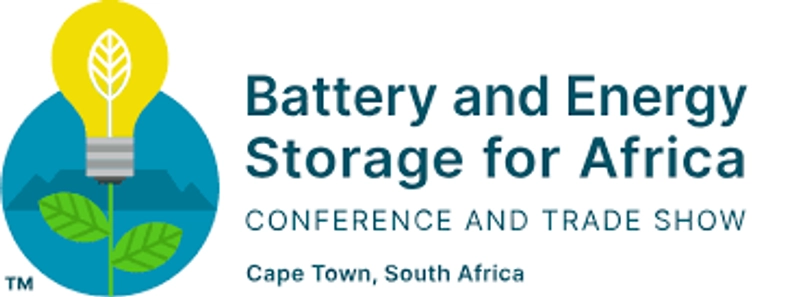
Battery and Energy Storage for Africa Conference and Exhibition
The Battery and Energy Storage for Africa Conference and Exhibition represents a critical moment in the ongoing evolution of energy storage technologies, particularly within the context of Africa’s rapidly growing demand for reliable and sustainable energy solutions. At the heart of this transformation is the high energy density of Lithium-ion (Li-ion) battery systems, which are now central to both portable and stationary electrical energy storage. These systems are poised to play a major role in addressing the energy challenges faced by the continent, particularly as the need for efficient, scalable, and environmentally friendly energy storage solutions becomes more urgent.
Lithium-ion batteries have gained significant attention due to their superior energy density compared to traditional energy storage systems. Their ability to store large amounts of energy in a relatively compact and lightweight form makes them indispensable for a range of applications, from electric vehicles to off-grid power solutions, which are particularly crucial in regions of Africa with limited access to stable electrical grids. This technological leap offers the potential for transformative changes in how energy is produced, stored, and consumed across the continent.
However, as with any technology, the adoption of Li-ion battery systems is not without its challenges. The increased energy density brings with it a series of engineering and safety concerns that must be addressed for these systems to reach their full potential. One of the most significant risks associated with Li-ion batteries is thermal runaway, a phenomenon where the battery’s internal temperature increases uncontrollably, leading to potential fires or explosions. Similarly, circuit board failures and other technical malfunctions can compromise the safety and reliability of these systems, especially under the intense operating conditions found in hot and variable climates like those in many parts of Africa.
These risks underscore the need for a multidisciplinary approach to battery design and deployment, blending expertise in material science, electrical engineering, and thermal management. Researchers, engineers, and manufacturers must work together to enhance the safety, reliability, and longevity of Li-ion battery systems. This involves not only improving the fundamental chemistry of the batteries but also developing better cooling systems, protection circuits, and fail-safes that can prevent or mitigate the risk of dangerous failures.
At the same time, the practical usability and cost-effectiveness of these systems are crucial considerations for widespread adoption, particularly in developing regions. While the benefits of Li-ion batteries are clear, their high upfront costs can be a barrier for many potential users, especially in regions where affordability is a significant concern. This makes the development of cost-effective manufacturing processes, as well as scalable solutions for integrating Li-ion batteries into diverse energy infrastructures, essential for ensuring that the technology is accessible to a broad range of users, from households to large industries.
The Battery and Energy Storage for Africa Conference and Exhibition provides an ideal platform to explore these challenges and discuss solutions. It brings together stakeholders from across the globe, including manufacturers, researchers, policymakers, and energy experts, to share knowledge, innovations, and strategies for advancing the use of Li-ion battery technology in Africa. Through networking, workshops, and presentations, the event highlights the critical role that energy storage will play in Africa's energy future, particularly as renewable energy sources such as solar and wind become more prevalent.
Ultimately, while the path forward for Li-ion batteries in Africa is complex and fraught with challenges, the ongoing development of these technologies, combined with the expertise shared at events like the Battery and Energy Storage for Africa Conference, will help to drive the continent’s transition toward a more sustainable, reliable, and cost-effective energy future. As the world continues to confront climate change and energy inequality, Africa’s adoption of advanced energy storage technologies will not only improve the lives of millions but will also contribute to the global effort to create a more sustainable and resilient energy landscape.

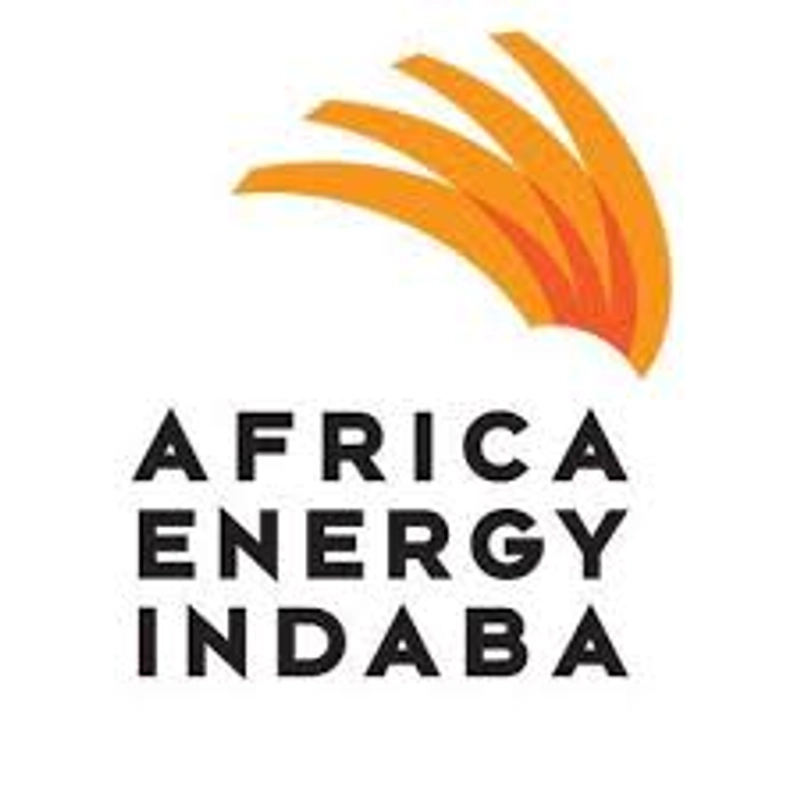
Africa Energy Indaba
In Africa, modern, affordable, reliable, and sustainable energy is not just a luxury but a vital ingredient for the continent's economic growth and development. The provision of access to energy has far-reaching effects, unlocking improved healthcare, enhanced education, and new economic opportunities in both urban and rural areas. Energy is the backbone of progress, and ensuring that every corner of the continent has access to it is paramount for the future of Africa. The Africa Energy Indaba stands as the continent's definitive energy conference, offering a unique platform that annually shapes energy policy and addresses some of the most pressing challenges facing the energy sector in Africa today.
This event brings together policymakers, industry leaders, experts, and innovators to delve deep into the solutions and strategies needed to tackle Africa’s energy crisis. The continent is rich with potential, yet many regions still suffer from inadequate energy generation and distribution. The Indaba serves as a vital space for discussions that aim to bridge the gap between the immense demand for energy and the limited supply, exploring everything from renewable energy options to off-grid solutions. It is a conference where ideas are not just shared but actively shaped into actionable plans that can transform the energy landscape across Africa.
The need for a reliable energy infrastructure in Africa cannot be overstated. With millions still lacking access to electricity, particularly in rural areas, energy generation and distribution must be prioritized if the continent is to reach its full potential. The Africa Energy Indaba explores the most relevant and urgent issues in this regard, focusing on innovative solutions that can be deployed quickly and effectively. Topics ranging from large-scale renewable energy projects to localized solutions for rural electrification are covered, providing diverse perspectives on how best to meet the continent’s energy needs. By bringing together experts from around the world, the conference offers an opportunity to explore the latest technologies, successful case studies, and scalable models that can drive real change.
But the Africa Energy Indaba is not just a conference—it’s a call to action. It encourages participants to think beyond the status quo and explore new, creative approaches to energy challenges. It is a place where partnerships are forged, ideas are challenged, and solutions are crafted. The event provides a platform to connect with specialists who are dedicated to transforming Africa’s energy sector. These connections foster collaborations that can bring long-term solutions to the energy crisis, whether through policy reform, investment in infrastructure, or the development of new technologies.
Moreover, the conference highlights the opportunities that lie within Africa’s energy sector. As the world shifts towards greener energy, Africa, with its vast renewable resources, has the chance to lead the way. The Africa Energy Indaba brings attention to the vast potential for growth and innovation in the sector. From solar power to wind energy, Africa has the natural resources to become a global leader in sustainable energy production. By harnessing these resources effectively, the continent can not only address its own energy needs but also become a significant player in the global energy market.

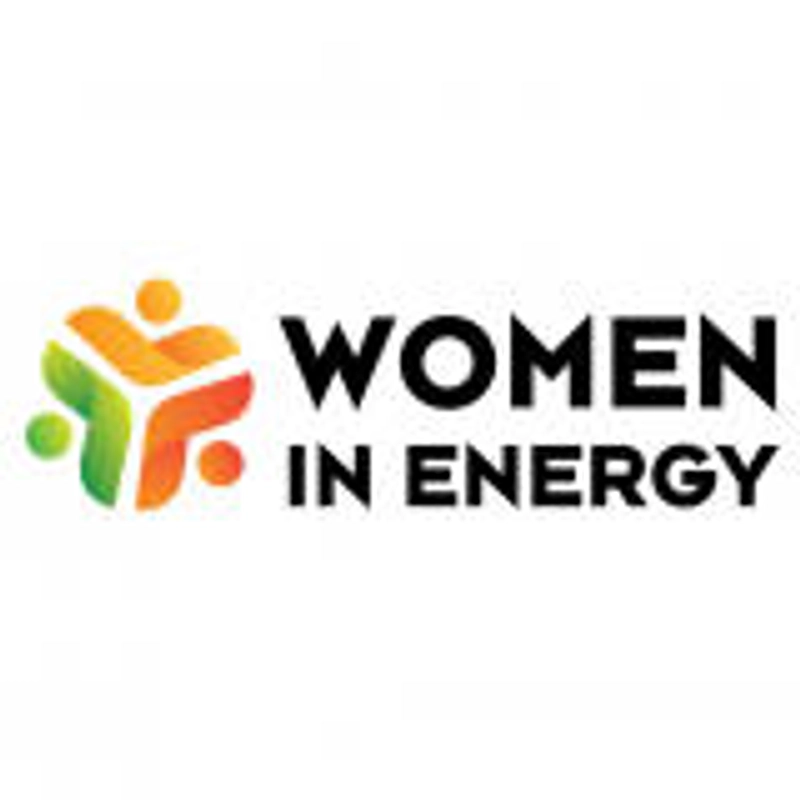
Women in Energy Forum
The Women in Energy Forum is a groundbreaking event that aims to empower and elevate the role of women in Africa's energy sector. Taking place in conjunction with the Africa Energy Indaba, this one-day forum serves as a crucial platform for women across the continent to come together, share their experiences, and collaborate on strategies that will help shape the future of energy in Africa. The event is designed to break down barriers and create opportunities for women to take on leadership roles, drive innovation, and contribute to the development of a more sustainable and inclusive energy landscape.
Titled "Breaking Barriers: The Role of Women in Shaping Africa's Energy Future," the forum brings together a diverse group of influential women who are at the forefront of the energy transition. These trailblazing professionals, policymakers, and emerging leaders will engage in discussions about the most pressing issues facing the energy sector, from gender equity and leadership to the promotion of sustainability and innovation. The forum creates a unique space for participants to exchange ideas, share their achievements, and discuss the challenges that still need to be addressed in order to ensure that women have equal opportunities to thrive in the energy industry.
At the heart of the Women in Energy Forum is the goal of fostering collaboration and mentorship. The event provides opportunities for women to connect with one another, as well as with key stakeholders and decision-makers from across the energy sector. These connections are invaluable in building a strong network of women who can support one another in their professional journeys, whether by offering mentorship, sharing expertise, or advocating for policies that promote gender equality. Through these interactions, the forum also aims to create a ripple effect, inspiring more women to pursue careers in energy and to take on leadership roles in both the private and public sectors.
One of the key themes of the forum is the promotion of gender equity in energy leadership and policy development. As Africa continues to grow and transform, it is essential that women are given an equal seat at the table when it comes to shaping the policies and strategies that will guide the continent’s energy future. Discussions will focus on how to address the gender disparities that exist in the energy sector and how to create more inclusive environments where women can lead with confidence and drive change.
The forum will also highlight the critical role of innovation and investment in achieving sustainable energy solutions. As Africa faces a growing demand for energy and the need to transition to cleaner, more efficient sources, it is essential to foster innovation and investment in the sector. Women have the potential to play a transformative role in this process, not only by leading projects and initiatives but also by advocating for policies that support the development and deployment of clean energy technologies. Through dialogue and collaboration, the forum will explore how to harness the power of women’s leadership to accelerate Africa’s energy transition.
Ultimately, the Women in Energy Breakfast Forum seeks to inspire and equip women to lead transformative change in the energy sector. By ensuring that women have the tools, networks, and opportunities to succeed, the forum aims to contribute to a more inclusive and diverse energy future in Africa. The event is a celebration of the progress that has been made, while also recognizing the work that still needs to be done to ensure that women’s voices are heard and valued in every aspect of the energy sector.
As the energy landscape in Africa continues to evolve, it is clear that women will play an increasingly critical role in driving the continent’s energy transition. The Women in Energy Forum is a vital step in ensuring that this future is one of equality, innovation, and sustainability, where women are not only participants but leaders in shaping Africa’s energy future.


Africa's Green Economy Summit
Africa's Green Economy Summit stands as a crucial event in the continent’s pursuit of a more sustainable and resilient future. Bringing together an impressive array of leaders, innovators, and experts, this summit provides a vital platform for discussing the intersection of economic growth and environmental stewardship. As Africa grapples with the challenges of development, climate change, and resource management, the summit aims to forge a path toward a green economy that can drive prosperity without compromising the planet's future.
This year, the summit’s scope has been expanded with the introduction of two new critical sectors: The Blue Economy and Sustainable Agriculture. The Blue Economy, which focuses on the sustainable use of ocean resources for economic growth, improved livelihoods, and jobs, presents exciting opportunities for Africa, particularly given the continent’s vast coastline and rich marine resources. Similarly, Sustainable Agriculture is key to ensuring food security while reducing environmental impact, and this sector will play a crucial role in promoting responsible land use practices, improving agricultural yields, and supporting smallholder farmers across the continent.
A central theme at the summit is the exploration of green technologies and their potential to transform Africa's energy, manufacturing, and transportation sectors. With renewable energy becoming increasingly cost-effective and essential in the global fight against climate change, the summit will focus on the transition to solar, wind, and other clean energy sources that are not only environmentally friendly but also economically beneficial for the continent. This transition to renewable energy is seen as a way to unlock new job opportunities, stimulate local economies, and reduce Africa's dependence on imported fossil fuels.
Equally important are the conservation efforts that will be discussed at the summit, as Africa is home to some of the world's most unique ecosystems. From rainforests to savannahs, the continent’s biodiversity is under threat from deforestation, poaching, and climate change. Protecting these ecosystems while allowing for sustainable economic development is a delicate balance, and the summit will focus on finding solutions that protect Africa’s natural heritage while enabling the growth of industries that are compatible with environmental sustainability.
An exciting feature of the summit is the participation of over 60 projects that will be pitching their ideas, backed by a pipeline of over $3 billion in investments. This impressive level of financial commitment highlights the growing interest in Africa’s green economy and the increasing recognition of the continent’s potential as a leader in sustainable development. These projects span across various sectors, from renewable energy and sustainable agriculture to water conservation and waste management, all aimed at accelerating Africa’s transition to a green economy.
One of the key drivers of change highlighted at the summit will be the involvement of women in the green economy. The WomenIn Green Economy initiative seeks to empower women as leaders, entrepreneurs, and innovators in the sustainable development space. By fostering women’s participation in green businesses and environmental advocacy, the summit aims to create more inclusive and equitable opportunities in the rapidly growing green economy. This initiative underscores the importance of gender equality in achieving sustainable development goals and ensuring that the benefits of a green economy are shared by all.
The summit will also feature more than 100 speakers who are thought leaders, government officials, business executives, and experts in sustainability. Their insights and discussions will provide valuable knowledge on how Africa can integrate environmental considerations into its economic policies, adopt greener technologies, and navigate the challenges posed by climate change. Through these conversations, the summit aims to create a collaborative space for stakeholders to exchange ideas, form partnerships, and develop solutions that are tailored to the unique needs and opportunities of Africa.
Africa's Green Economy Summit represents more than just a gathering of industry leaders—it is a call to action for the continent to seize the opportunity to shape its future through sustainable economic practices. As Africa looks to the future, it is clear that green growth, powered by renewable energy, innovative technologies, and sustainable practices, is the key to unlocking the continent’s full potential. By fostering collaboration, catalyzing investment, and empowering women and communities, the summit provides a roadmap for Africa to not only thrive economically but also to lead the world in creating a sustainable, inclusive, and resilient future.

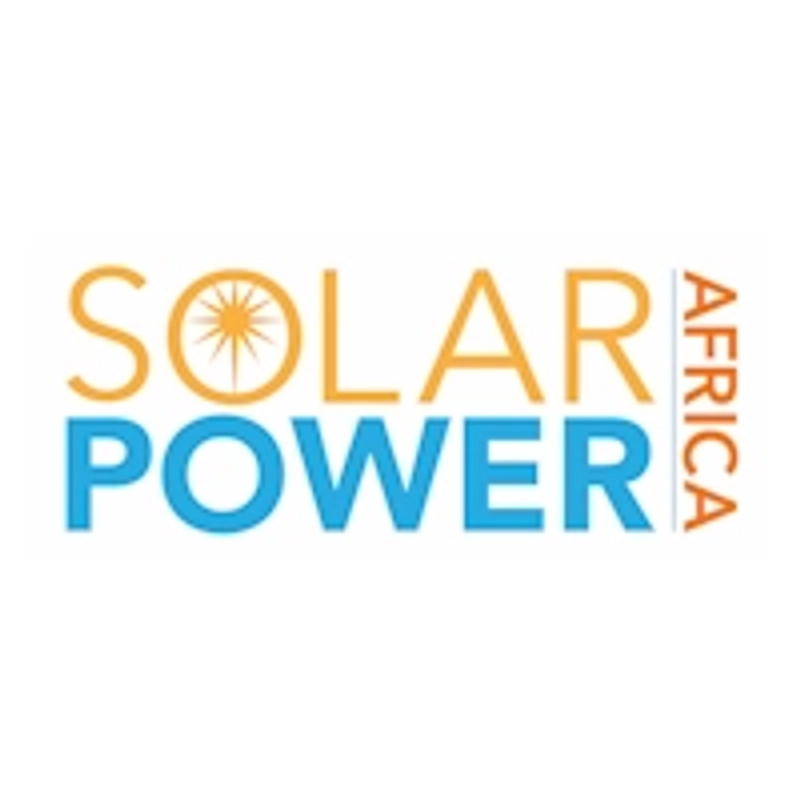
Solar Power Africa
Solar Power Africa stands as the premier trade fair on the African continent, gathering the brightest minds and innovative solutions in solar energy and energy storage. Held annually at the Cape Town International Convention Centre (CTICC), this event has become a cornerstone for professionals, developers, consultants, and service providers in the solar industry. The event, organized by Messe Frankfurt South Africa, reflects the growing importance of renewable energy solutions across the continent and showcases the latest advancements that are shaping the future of energy.
As the world increasingly turns its attention to sustainable energy sources, Solar Power Africa provides a vital platform for the presentation of cutting-edge technologies that are driving the global transition to greener, cleaner power. The fair brings together an impressive array of products and services, ranging from photovoltaics (PV) and concentrated solar power (CSP) to solar thermal technologies and energy storage solutions. A central feature of the exhibition is its focus on critical components of solar energy systems, including inverters, mounting solutions, hot water preparation systems, and manufacturing solutions, all of which are crucial to building the infrastructure necessary for a low-carbon future.
One of the most notable themes at Solar Power Africa is the growing significance of the green hydrogen economy. With its potential to revolutionize energy storage and consumption, green hydrogen is a hot topic at the fair, attracting discussions and presentations from leaders in the field. The event also delves into the intersection of solar energy and electric vehicles, exploring the potential for solar-powered EVs and how they can contribute to a cleaner and more sustainable transportation system. Alongside these technological discussions, the fair addresses the political and regulatory frameworks surrounding solar energy, exploring policies that can foster the growth of the renewable energy sector and stimulate investment in Africa’s energy future.
The event also provides a rich program of conferences and panel discussions, where industry experts, policymakers, and thought leaders share insights into the future of energy. These sessions tackle crucial issues such as market developments, the scaling of renewable energy technologies, and the role of solar power in meeting Africa’s growing energy demands. Government officials, investors, independent power producers, and legal experts come together to discuss the challenges and opportunities in the renewable energy sector, fostering collaboration that is essential for accelerating the continent’s transition to sustainable power sources.
Cape Town serves not only as the picturesque backdrop for Solar Power Africa but also as a symbolic location for the event. Known for its commitment to environmental sustainability, the city provides an ideal setting for discussions about the future of clean energy. The Cape Town International Convention Centre, with its modern facilities and excellent accessibility, is a fitting venue for an event that seeks to drive forward the adoption of renewable energy across Africa. The city’s emphasis on green technologies and sustainable development aligns perfectly with the goals of Solar Power Africa, making it an ideal location for bringing together the industry’s leading players and decision-makers.
As solar energy continues to be a key driver of economic growth and environmental sustainability in Africa, Solar Power Africa remains an essential gathering for anyone involved in the renewable energy sector. From showcasing the latest innovations in solar technology to fostering high-level discussions on policy and investment, the fair plays a critical role in shaping the future energy landscape of the continent. For exhibitors and attendees alike, the event offers unparalleled opportunities to network, learn, and collaborate on the next generation of energy solutions that will power Africa’s sustainable future.

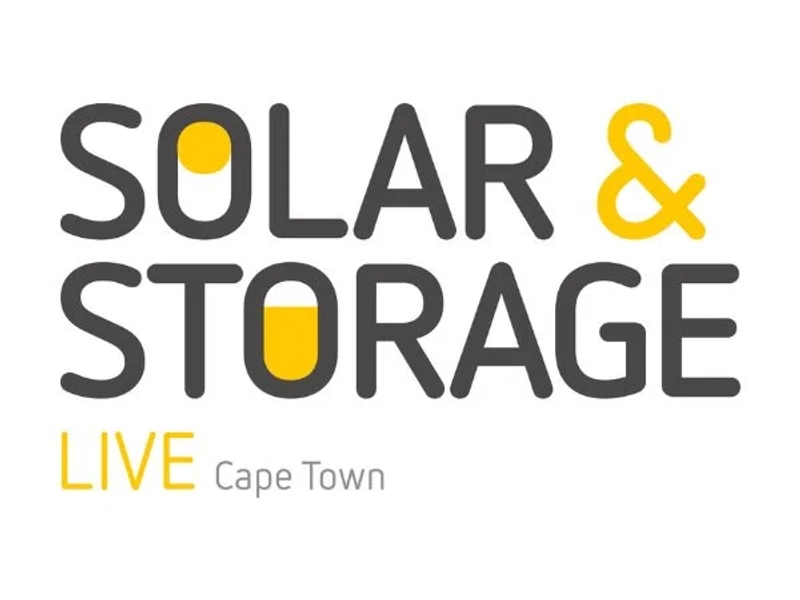
SOLAR & STORAGE LIVE - SOUTH AFRICA - CAPE TOWN
In the dynamic arena of energy evolution, a groundbreaking event emerges, engineered to encapsulate the essence of South Africa's journey towards a sustainable future. Introducing Solar & Storage Live, Cape Town's premier renewable energy exhibition, celebrating the transformative power of solar energy and cutting-edge battery storage solutions that are shaping the nation's energy transition.
With years of energy expertise as its foundation, Solar & Storage Live stands as a beacon of innovation, highlighting the latest advancements in clean energy technologies and the disruptive market forces propelling South Africa's energy revolution. From solar panels to energy storage systems, this event showcases the tools and solutions driving the transition to a greener, smarter, and more decentralized energy system.
At the heart of Solar & Storage Live lies a commitment to education and collaboration. The free-to-attend exhibition welcomes 150 global brands, offering attendees a firsthand look at the latest products and solutions in the market. From industry giants to innovative startups, exhibitors demonstrate the diverse range of offerings driving progress in the renewable energy sector.
Over two action-packed days, industry leaders converge to share their expertise through presentations, panel discussions, and interviews. These thought-provoking sessions delve into key topics in the field, shedding light on the technology and innovation shaping the future of the industry. From addressing challenges to seizing opportunities, Solar & Storage Live serves as a platform for meaningful dialogue and collaboration.
As South Africa charts its course towards a sustainable energy future, Solar & Storage Live stands as a driving force for change, empowering stakeholders to embrace clean energy solutions and drive meaningful impact. Join us in Cape Town as we embark on a journey towards a brighter, more sustainable tomorrow.